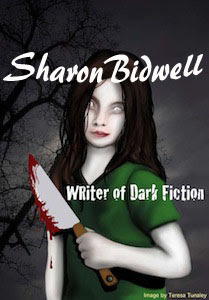With the gift-giving season fast approaching, I couldn't help but think back on some of my childhood reads, which was my favourite type of gift to receive. I've never had a child in my life I haven't given books to.
A few years ago I read The Owl Service by Alan Garner owing to a recommendation. I cannot say I found the writing charming and yet it has a haunting, surreal quality that makes for a memorable read. It’s supposed to be a children’s book but I can’t think of a reason apart from the adage in the publishing world that if the main character is a child, then it is a book for children. Publishers seem to think if the lead is a child, it will hold no interest for adults. The worldwide phenomenon of a certain wizard has turned this concept on the head. Whether you love or loathe the particular boy lead in question, I think this is a good thing. There are many books out there that cross the barrier between child and adult readers and I for one am not too proud to admit reading the occasional children’s book. I cannot imagine the inability to enjoy a pleasant afternoon revisiting some of my old favourite characters in their adventures. I have a quote on my website by C.S.Lewis: No book is really worth reading at the age of ten which is not equally (and often far more) worth reading at the age of fifty and beyond.
When I young, my reading material was Pooh and then Enid Blyton’s Mr Meddles Muddles, Mr Pinkwhistle or Mr Twiddle. I was also fond of her Wishing Chair series and to this day I own a copy of Mr Galliano’s Circus (although I used to call him Mr Galeeno as I couldn’t get my tongue around the pronunciation). I wanted to be young Jimmy Brown and run away to the circus. In a more enlightened time and as an adult I couldn’t imagine anything worse (I am not a supporter of animal circuses) but I understand it was the running away on an ‘adventure’ part I loved so well. In the Moomins books, I wanted to be Snuffkin and share his love of travelling. From there I went on to Charlie and the Chocolate Factory although I always preferred The Great Glass Elevator. Yes, there is a second book! I adored the Vermicious Knids far more than the Oompa-Loompas.
There was no stopping me. I loved The Water Babies because it touched my sense of fair play. Every child should hear of Mrs Doasyouwouldbedoneby or Mrs Bedonebyasyoudid. One Hundred and One Dalmatians a Disney film? I read the book by Dodie Smith and progressed to the sequel. Yes, once again there is a follow-up people seldom hear of called The Starlight Barking. Likewise, I read Bambi the book by Felix Salten and you’ll never see that story the same way again. As a child I lent it to an aunt and insisted she read it. After much nagging she (begrudgingly) sat down one day and only stopped when she realised it had grown too dark to see. She was that lost in the story.
Then it was Ballet Shoes and What Katy Did. My most unusual children’s book has got to be Snowflake by Paul Gallico. Mine is tatty, gone orange and lost its cover, though I can remember the cover to this day: pale blue and white with a white snowflake with a child’s face in the centre. Snowflake is ‘born’, falls in love with ‘Raindrop’, goes on a journey and at last returns to her creator. It’s the first book that made my heart ache.
Later came Oscar Wilde. His Happy Prince story made me sob. Once I was old enough, we started on the classics. It’s amazing in this day that classic literature is often termed as stuffy. Maybe it’s the classic moniker that has done the harm. They weren’t classics when I was young; they were just books. I started with Heidi but was soon on to Gulliver’s Travels, Treasure Island, Robinson Crusoe, Oliver Twist, Tom Sawyer and Huckleberry Finn. These were my world. They were my friends. They never failed me, and took me adventuring with them. It’s a sad world where children don’t read these books today.
Then it was Mary Shelley’s Frankenstein — the name of the creature’s creator, not the ‘monster’ when the whole point of the book is the true monsters are the man who created him, and the society who hounds him. This so-called horror story isn’t only that. It’s a morality lesson. At once I fell into the richness of the language, some of which may seem superfluous in this modern age but even in Mary Shelley’s introduction doesn’t “Night waned upon this talk, and even the witching hour had gone by, before we retired to rest” much more engrossing than “We talked well into the night before we went to bed”?
One of my favourite works is the Gormenghast Trilogy by Mervyn Peake, for the involved story, the characters, and, most of all, owing to its rich language. I’ve enticed people to watch the BBC series but even though they often love the story, it disinclines them toward the book. I feel it’s a pity that children are often no longer raised on such rich prose. Not only are they missing out on such imaginative stories, one can’t help speculating whether it would do wonders for their verbal skills and their ability to communicate.

No comments:
Post a Comment